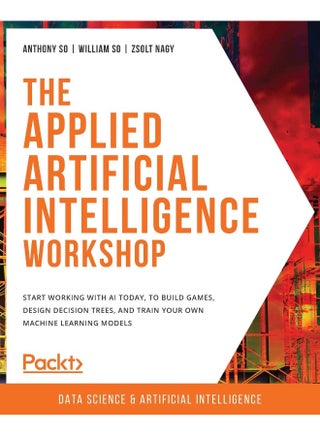Free & Easy Returns
Best Deals



| Publisher | Packt Publishing |
| ISBN 10 | 1800205813 |
| Language | English |
| About the Author | Anthony So is an outstanding leader with more than 13 years of experience. He is recognized for his analytical skills and data-driven approach for solving complex business problems and driving performance improvements. He is also a successful coach and mentor with capabilities in statistical analysis and expertise in machine learning with Python.William So is a data scientist with a strong academic background and extensive professional experiences. He has continually been recognized for his analytical skills and data-driven approach for solving complex business problems and driving business values. During his career, he successfully covered the end-end spectrum of data analytics from ML to business intelligence helping stakeholders derive valuables insights and achieve amazing results for the benefits of the business. He is also a strong communicator interacting with operational to senior management across different departments including IT, marketing, and finance. He is passionate about the utilisation of deep learning technology and is currently enrolled in a deep learning nano-degree hosted by Udacity.Zsolt Nagy is an engineering manager in an ad tech company heavy on data science. After acquiring his MSc in inference on ontologies, he used AI mainly for analyzing online poker strategies to aid professional poker players in decision making. After the poker boom ended, he put extra effort into building a T-shaped profile in leadership and software engineering. |
| Number of Pages | 420 pages |
| ISBN 13 | 9781800205819 |
| Author | Anthony So |
| Book Description | With knowledge and information shared by experts, take your first steps towards creating scalable AI algorithms and solutions in Python, through practical exercises and engaging activitiesKey FeaturesLearn about AI and ML algorithms from the perspective of a seasoned data scientistGet practical experience in ML algorithms, such as regression, tree algorithms, clustering, and moreDesign neural networks that emulate the human brainBook DescriptionYou already know that artificial intelligence (AI) and machine learning (ML) are present in many of the tools you use in your daily routine. But do you want to be able to create your own AI and ML models and develop your skills in these domains to kickstart your AI career?The Applied Artificial Intelligence Workshop gets you started with applying AI with the help of practical exercises and useful examples, all put together cleverly to help you gain the skills to transform your career.The book begins by teaching you how to predict outcomes using regression. You'll then learn how to classify data using techniques such as k-nearest neighbor (KNN) and support vector machine (SVM) classifiers. As you progress, you'll explore various decision trees by learning how to build a reliable decision tree model that can help your company find cars that clients are likely to buy. The final chapters will introduce you to deep learning and neural networks. Through various activities, such as predicting stock prices and recognizing handwritten digits, you'll learn how to train and implement convolutional neural networks (CNNs) and recurrent neural networks (RNNs).By the end of this applied AI book, you'll have learned how to predict outcomes and train neural networks and be able to use various techniques to develop AI and ML models.What you will learnCreate your first AI game in Python with the minmax algorithmImplement regression techniques to simplify real-world dataExperiment with classification techniques to label real-world dataPerform predictive analysis in Python using decision trees and random forestsUse clustering algorithms to group data without manual supportLearn how to use neural networks to process and classify labeled imagesWho this book is forThe Applied Artificial Intelligence Workshop is designed for software developers and data scientists who want to enrich their projects with machine learning. Although you do not need any prior experience in AI, it is recommended that you have knowledge of high school-level mathematics and at least one programming language, preferably Python. Although this is a beginner's book, experienced students and programmers can improve their Python skills by implementing the practical applications given in this book. |
| Publication Date | 20 July 2020 |

